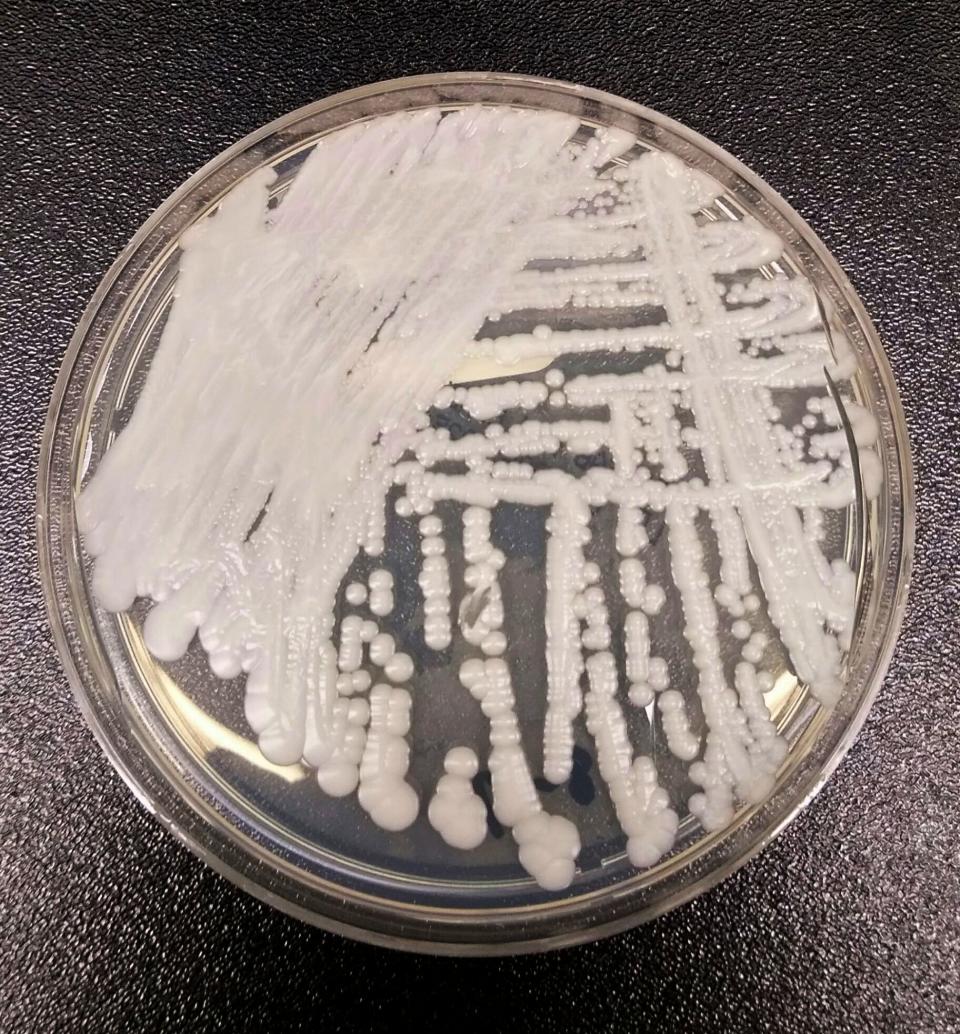This superbug is a 'serious global health threat.' Here's what you need to know about Candida auris
A trip to the hospital might suddenly be even less desirable.
A superbug considered by the Centers for Disease Control and Prevention as “a serious global health threat’’ has been proliferating in the U.S. and abroad in recent years, with 617 confirmed cases domestically and more than 20 other countries reporting multiple instances.
The fungus, named Candida auris – also called C. auris – typically preys on hospital or nursing home patients, causing potentially fatal infections that oftentimes haven’t responded to the usual treatments.
Here’s what you need to know:
What is Candida auris?
A fungal disease that spreads in healthcare settings, causing invasive infections. First identified in Japan in 2009, Candida auris began occurring in the U.S. primarily after the midpoint of 2015.
The CDC is particularly concerned about it because C. auris is difficult to diagnose, requiring specialized lab work, and prompt action is necessary to prevent it from spreading. In addition, most of its strains have proven resistant to at least one anti-fungal drug.
Who does it affect?
Candida auris typically preys on patients who already have a serious medical condition or a compromised immune system, especially those who require intrusive treatment with a tube going into their body.

Healthy people typically don’t get infected, but they should clean their hands with soap and water or hand sanitizer when they come in contact with a patient who has the disease or with surfaces or equipment in the room.
The CDC says 30-60% of the people who have contracted C. auris infections have died, but it also points out many of them were at increased risk because of serious illnesses.
Where have outbreaks occurred?
Largely in New York, New Jersey and Illinois – particularly in Chicago – which have accounted for more than 90% of U.S-based cases as of March 29. New York had the largest outbreak with 309, though cases have been reported in 12 states.
Measles outbreak: How can some students be exempt from mandatory vaccines?
Want news from USA TODAY on WhatsApp? Click this link on your mobile device to get started
Patients may have the fungus in their body, usually on the skin, even before developing the infection or feeling any symptoms, a condition known as colonization. Those patients can spread the disease. The CDC says more than 1,000 patients over seven states have been found to be colonized.
What are the symptoms?
Symptoms vary, but the most common ones are a fever and chills that don’t respond to antibiotics. In those cases, specialized lab tests are required to ascertain whether the condition is Candida auris. The disease often causes infection in the bloodstream, the ears or in a wound.
“Conventional laboratory techniques could lead to misidentification and inappropriate management,’’ the CDC says, “making it difficult to control the spread of C. auris in healthcare settings.’’
How is it treated?
The CDC said the majority of C. auris infections respond to treatment with a class of antifungal medications known as echinocandins. But some strains resist all three main classes of drugs, requiring higher doses of multiple medications. Consulting an expert on fungal infections may be advised in those instances.
How to avoid it?
If you’re around a patient with C. auris, wash your hands and request that others who are exposed do the same, including healthcare workers.
“C. auris can spread between patients in healthcare facilities and cause outbreaks. In this way, it appears to behave much like some multidrug-resistant bacteria,’’ CDC expert Tom Chiller said, adding that the yeast can live on surfaces for a month or longer.
The CDC recommends that patients with Candida auris be placed in a single room that may require frequent cleaning with a high-grade disinfectant.
This article originally appeared on USA TODAY: This superbug is a 'serious global health threat.' Here's what you need to know about Candida auris

